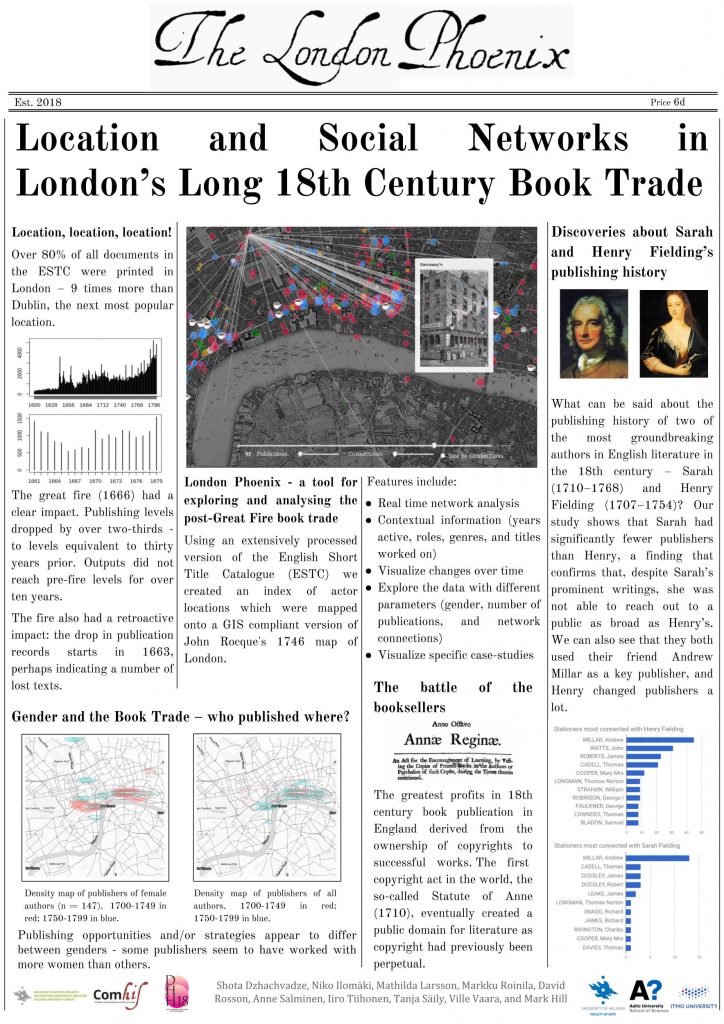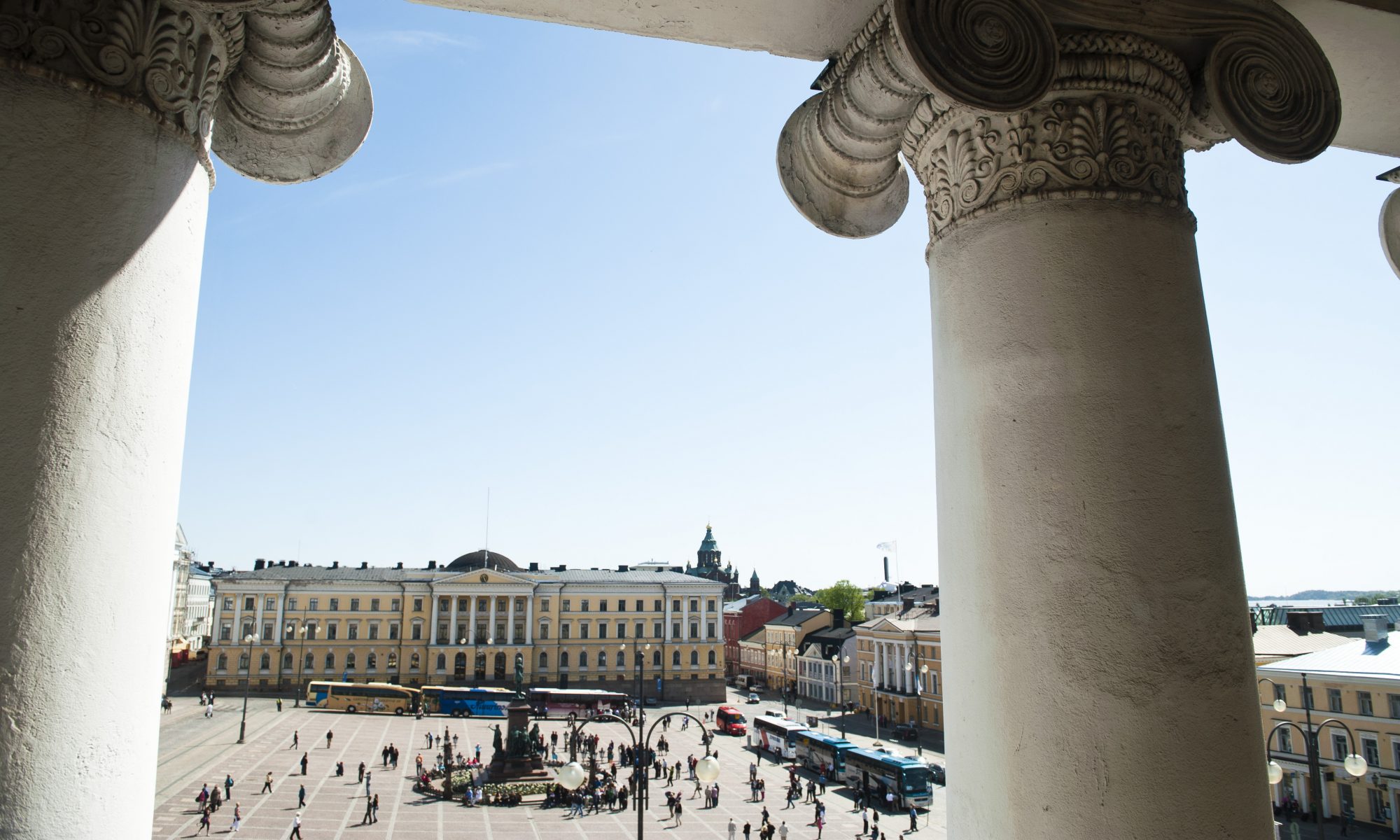Helsinki Centre for Digital humanities has organized hackathons since 2014. This year it lasted for eight days. Our reporter lived each moment of it with passion and shares his experiences in this blog. This is the abstract of the original post (in Finnish).
The writer participated in Digital humanities hackathon 2018, where humanists and data scientists worked together for eight days on various theme-based research projects. He found out that digital humanities could be a lot of fun, but at the same time a lot of work.
Working with the databases requires a lot of cleaning of the data and there are limits to what can be researched with data mining. A good example is one of the tasks of the workgroup the writer was involved, which researched Early Modern publishing in 18th Century England (see all themes here). This task was to research the genre novel in the 18th century. It turned out that it was very difficult to distinguish novels from other genres, such as sermons and plays, merely by title in the database.
The writer (whose day job is as an information specialist in Helsinki University Library, but has a background in history and philosophy) noted that digital humanities is a thoroughly humanist enterprise – the research questions starts from the interests of the humanists although the methods of getting the results are founded on datamining.
The workgroups in the hackathon used predominantly licensed databases ECCO and ECTS, but the continuing cleaning of these databases by Helsinki Computational History Research Group is likely to contribute to open science when the cleaned-up databases becomes openly available (provided that a deal with the publishers is reached).

